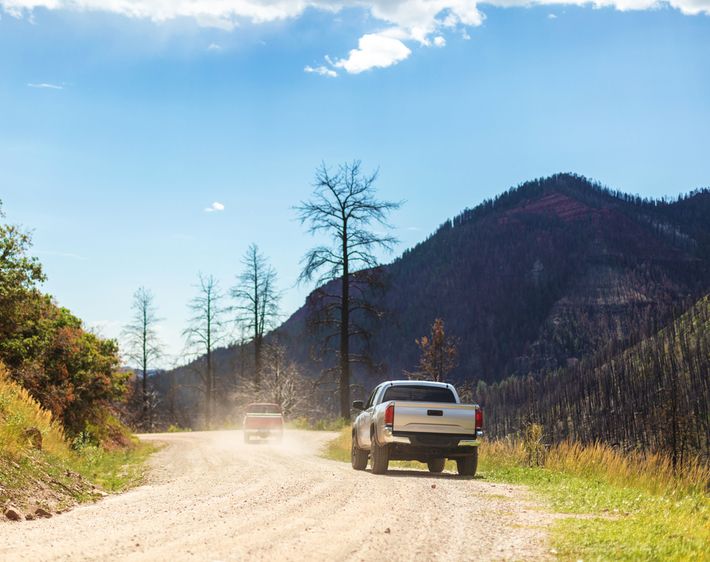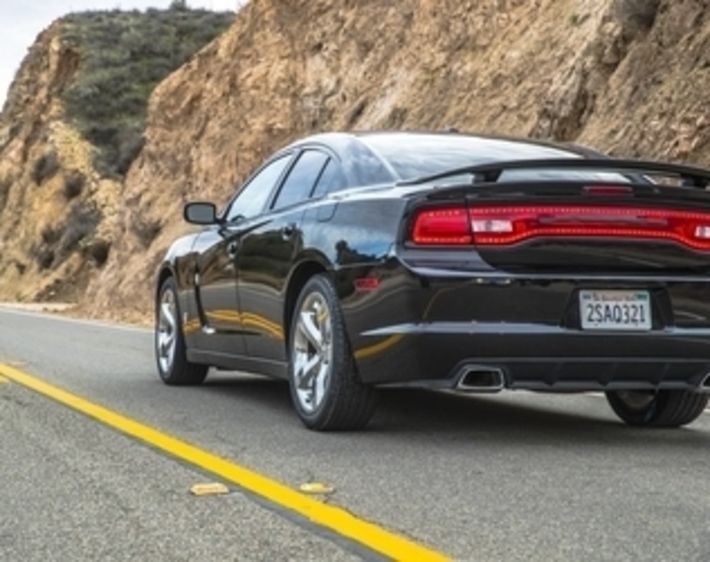SUV, CUV, LT... The world of cars seems to be full of acronyms. Even tire types and sizes can feel like you're trying to crack a code, but Tires Plus is here to help! We'll crack the code on vehicle types and their differences.
Different Types of Vehicles
While there are many types of vehicles on the market, some of the more common classifications include LTs, SUVs, and CUVs. There are many makes and models within these vehicle classes, but they all have fairly similar characteristics.
What kind of vehicle is an LT?
LT, or Light Truck, is a classification of truck with a GVWR (Gross Vehicle Weight Rating = the maximum weight of the vehicle plus the passengers plus the cargo) of up to 10,000 pounds. Trucks with GVWRs beyond that move into the Medium and Heavy Duty classes. Light trucks are popular for their ability to haul and tow weighty loads while maintaining fuel efficiency that's in line with SUVs and minivans.
What kind of vehicle is an SUV?
An SUV, or Sport Utility Vehicle, provides both the benefits of a passenger car and the hauling and towing capabilities of light trucks. SUVs come in many sizes and are commonly built on the chassis and frame of a light truck.
What kind of vehicle is a CUV?
A CUV, or Crossover Utility Vehicle, is an increasingly common vehicle that blends a sedan's compact convenience with the roominess of an SUV. While SUVs are commonly built on a light truck's chassis, a CUV is built on the chassis of a car, making it a bit lighter.
Different Types of Tires
When it comes to auto tires, there are many options to choose from. And tires are not all created equal. Once you know whether you drive an LT, SUV, or CUV — it's essential to get the right kind of tires for your truck. After all, having the right tires for your vehicle can help support a smooth ride, fuel efficiency, and even tire lifespan.
Learn how to determine the best tires for your truck and driving style by understanding the different tire tread designs.
Summer Tires
Summer tires have a tread that is designed to offer excellent traction on both wet and dry surfaces. Typically, summer tires excel at resisting hydroplaning. However, they are not designed for use in snow or light ice. Summer tires are mostly found on high-performance vehicles.
All-Season Tires
All-season tires are one of the more popular tires, as they are designed for year-round use. Their tread helps provide control in wet, dry, and snowy conditions. There are many types of all-season tires since all-season tread design can be found in Passenger, Light Truck, Touring, and Performance tire categories.
Winter Tires
The construction elements, materials, and tread patterns found on winter tires make them ideal for icy and snowy conditions. Their superior winter performance can be attributed to things like softer rubber compounds and sipes on the tread. Most SUVs, CUVs, and light trucks can benefit from having winter tires during the colder months.
Directional Tires
Directional tires are defined by the tread pattern, which is designed to rotate in one direction. When mounted correctly, directional tires have increased performance in wet conditions at highway speeds. While directional tread is commonly found on Ultra-High Performance tires, it can also be featured on some winter and touring tires.
Asymmetric Tires
Asymmetrical tires feature different tread patterns on the outside and inside areas of the tread. These tires are typically designed to provide better wet traction while maintaining grip during hard cornering. Asymmetric tread designs can also be found on winter, summer, and all-season tires.
All-Terrain Tires
All-Terrain (AT) tires are made to offer better performance both on and off the road. Larger tread blocks, deeper tread depth, and broader tread grooves provide excellent traction on highways, unpaved roads, and off-road terrain. If you want a combination of an aggressive look on the road and traction off the beaten path, AT tires might be the right choice for your truck.
Max-Traction Tires
When it comes to types of mud tires for your truck, Max-Traction (MT) tires are at the top of the list — particularly if your work or hobbies require a lot of off-road action. Max-Traction tire tread is one of the most common designs on mud tires thanks to their open shoulders and large spaces between tread blocks. This tire tread is meant mostly for muddy and rocky terrains as it does not retain its traction abilities on pavement.
Does It Matter What Kind of Tires You Buy?
When it comes to buying tires, does it really matter which kind you get? Yes. Getting the right kind of tire for your SUV, CUV, or LT vehicle can make all the difference in your vehicle's performance. For instance, equipping your light-duty truck with Ultra-High Performance summer tires would make it very hard for you to do truck stuff like towing and off-roading.
On the other hand, putting all-terrain or max-traction tires on a sporty, high-performance vehicle could make it a little less sporty.
Ultimately, there isn't one specific tire for every kind of vehicle, especially SUVs, CUVs, and LTs since each has a fair amount of versatility in terms of highway and off-road capabilities. When it comes to choosing the right kind of tire for your vehicle, start by looking at how and where you drive to help you determine the kind of tire and type of tread design you need. Then, look to your vehicle’s load carrying capacity to ensure your new tires meet or exceed your vehicle manufacturer’s recommendations.
Get the Right Tire at Tires Plus
Don't stress over choosing the right tire for your vehicle. Come to Tires Plus, where we make tire shopping easy! Stop by a Tires Plus location to talk tires with our expert technicians. We'll help you find the right kind of tire for what you drive, how you drive, and where you drive. And since we're not salespeople, there's no upselling or sales pitches involved — just people helping you get the tires you need to keep you in the driver's seat!



